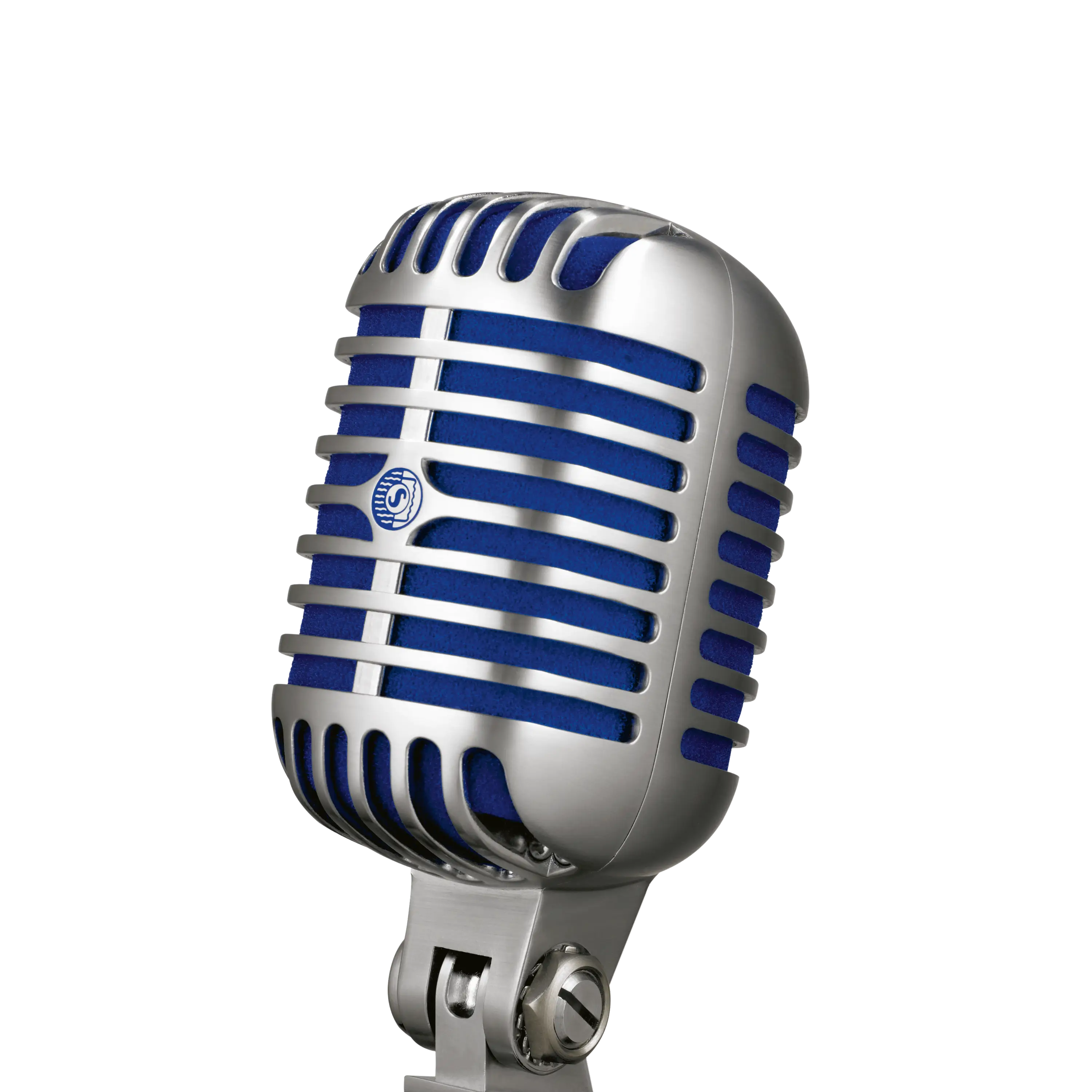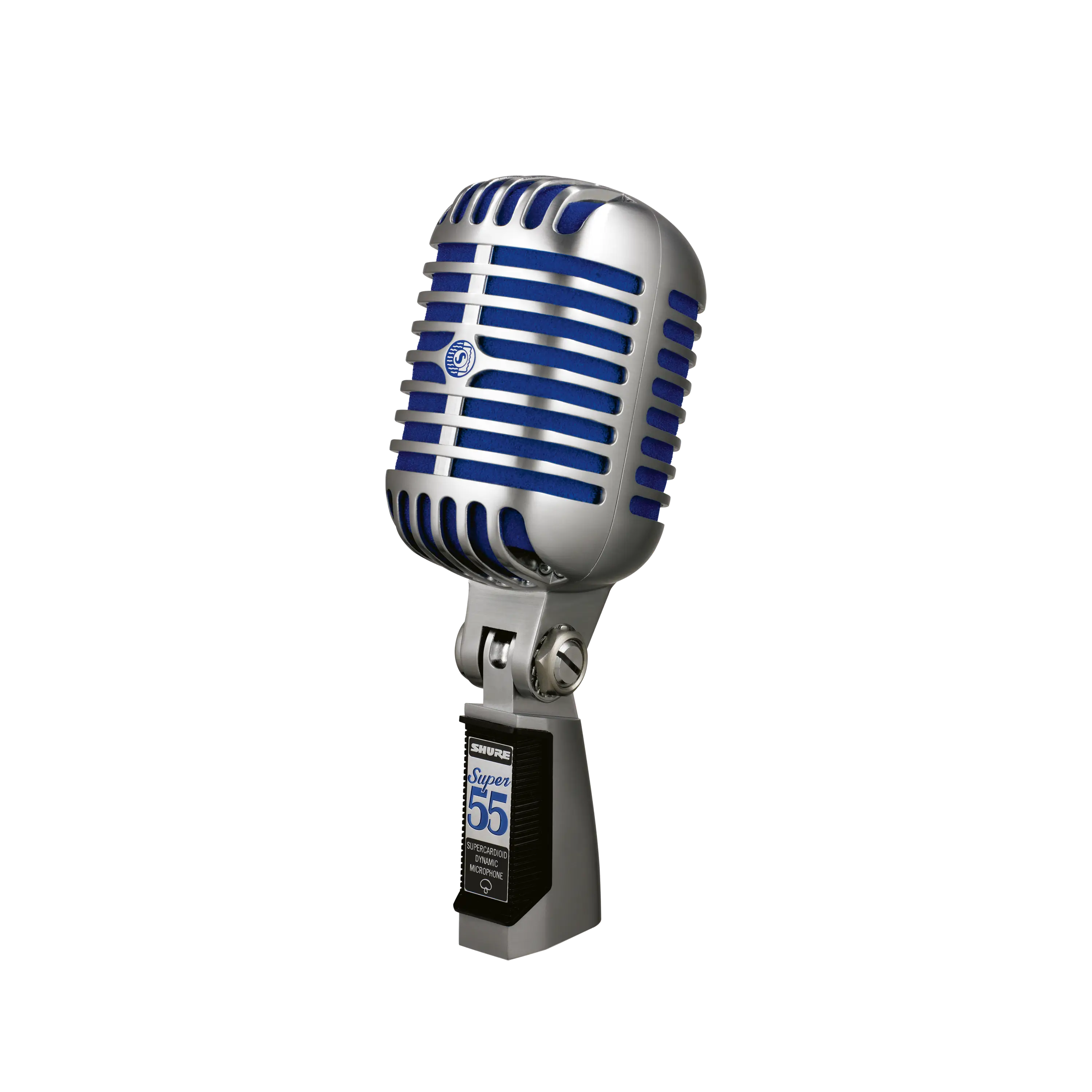Shure Classics That Inspired the Design of MOTIV MV5 and MV51 Microphones

When the newly minted Industrial Design Team at Shure was tasked with designing a line of portable digital mics and recording solutions for everyday and professional use, they were determined to knock one out of the park.

Challenges and Solutions
The mission: create a line of user-friendly condenser mics that could be plugged right into a computer, Android or iOS device. The challenge: walk the line between consumer and professional use; make them simple enough for beginners and sophisticated enough for the pros. One other thing: deliver the Shure standard for audio excellence, performance and durability.
John Miller, lead industrial designer and manager of the five-person Industrial Design Team, takes us back to the early planning phase and explains how vintage Shure microphones influenced the design of two desktop mics in the MOTIV™ digital recording line.
By the end of the MOTIV line's two-year development period, the team had grown from a small group of visionaries to a larger corporate group. John remembers it this way: "Eventually a development team is formed that's charged with handling every detail involved in bringing a product to market. There were more than 20 people on the core team and more in manufacturing and the supply chain."
Inspiration
In those early explorations, the MOTIV line (unnamed at that point) was sketched out in broad strokes. One thing that John and a small group of marketers, designers and engineers knew was that in addition to an iPhone-mounted mic (today's MV88) and a digital audio interface that would allow any microphone to be plugged directly into a Mac or PC (MVi), the line would include two desktop models (those became the MV5 and the MV51).
That sparked an idea, according to John: "The mics in those applications tend to have more character. We also knew that retro design has a place in that environment." It was also true that competitive mics sometimes borrowed design elements from vintage mics. That presented John and the team with an advantage: nearly nine decades of Shure microphones, many of them icons. There was a lot to choose from and a lot of work to do.
MV5

Team Challenge:
Design a plug-and-play USB small diaphragm condenser microphone with a removable stand for recording vocals, instruments and podcasts. Offer three selectable DSP modes to match the recording application, and make it easy enough for anyone to use.
Solution:
Here's John: "The process began with sketches, then moved on to 3D prints of various options. The idea was to incorporate elements of various vintage Shure mics without reinterpreting any specific one.
For instance, the front grille design and the dog tag-style badge on top come from the 520 'Green Bullet' and other mics of its era. The sphere reflects the ball grilles on our handheld mics. The SM7 is where the MV5 gets that beltline in the middle. We borrowed elements of the Uniplex microphone for the back venting pattern and some of the details there.
There's another detail in this mic and in the MV51 that takes a cue from the past. We treated the logo in the same way that it appears on the Super 55 Unidyne® mic. This was the Shure brand mark in the 1940s."



MV51

Team Challenge:
Design an affordable plug-and-play large diaphragm condenser microphone with a removable kickstand for recording vocals, instruments and podcasts. Offer five touch-panel selectable DSP modes to match the recording application, and make it easy enough for anyone to use.
Solution:
John again: "The MV51 is based on the 1947 Model 51 Sonodyne mic, and it's much more literal in its modern interpretation. Think of it as the new Volkswagen Beetle. The Sonodyne has characteristics that really fit the market needs for this tier of products. For example, its flat face gave us a nice place to put a rich user interface area. The thread-off kickstand makes it easy to mount on mic stands. That's important since it crosses that line between consumer and professional use.
The MV51 is die-cast zinc, so it has some weight to it, as does the stand on the back. We looked at a more refined version of the joint on the MV51, but we ended up using the same hardware that we used on the Super 55. You can see all the nuts and bolts and washers that are part of it. That's what gives it its authenticity."

Great Design & Convenience, A Winning Combo
The MOTIV product line first hit the market in September 2015 after a NAMM 2015 debut and included the MVL lavalier mic in addition to the four aforementioned products. By then, John and his team were steeped in other projects, including the KSM8 Dualdyne™ mic that made its first appearance at Winter NAMM in January 2016. Like the MV5 and the MV51, the KSM8 Dualdyne took some visual cues from famous forebears.
Sounds easy, right? "With the MV5 and the MV51," John said, "we balanced being authentic and true to Shure values, stepping over that line, and being trendy or trite. Shure is very function-focused, so we had to convince our internal partners that certain design aesthetics had value. There were discussions about attributes that couldn't be measured in the lab and decisions that weren't based on data."
In the end, everyone agreed, and better yet, so did customers. "We're seeing more and more professional applications for MOTIV," said John. "When convenience is a consideration, we've heard from the pros about gear that's being replaced in their live recording applications—thousands of dollars worth of stuff. Some users are switching over. For others, it's a supplemental thing. That's exciting for us. We get a lot of feedback from our customers, so there's a huge opportunity for us to better understand the role that our devices play and to keep designing great products for them."
Editor's Note, March 2017: Speaking of winning, we are proud and humbled to announce that both the MV51 and MV88 were awarded the prestigious iF Design Award for outstanding design in 2017.




